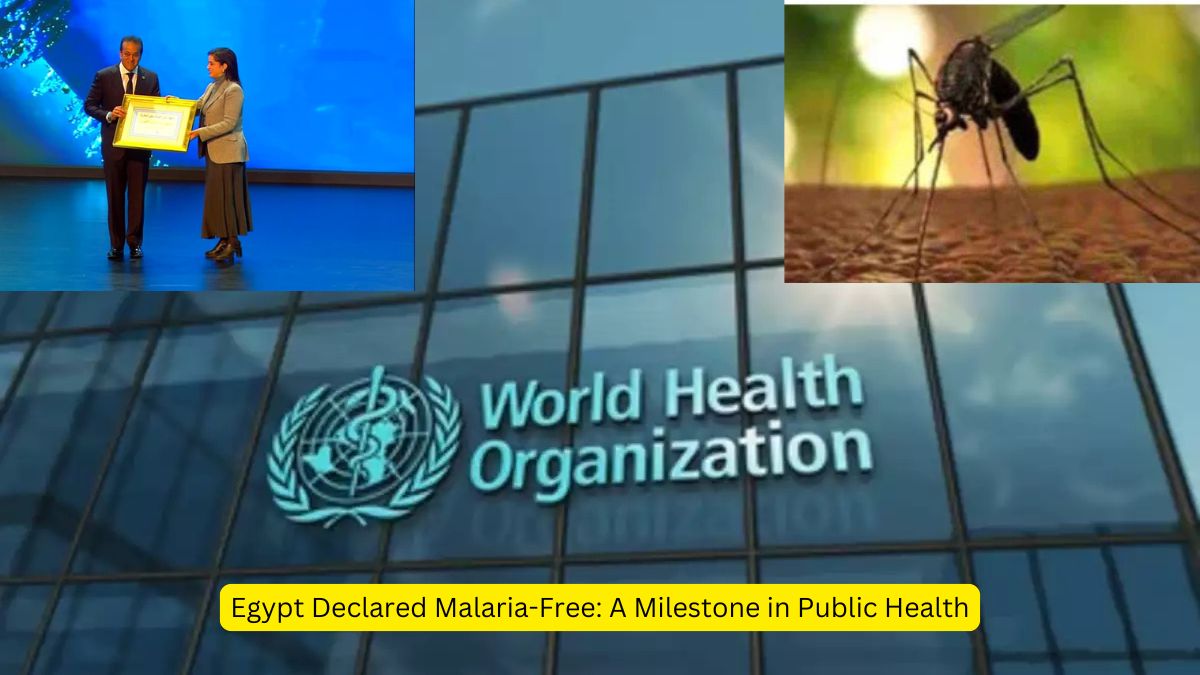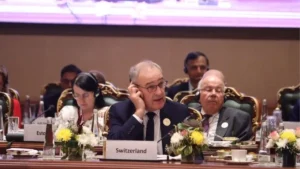Egypt has reached a significant public health milestone by being officially declared ‘malaria-free’ by the World Health Organization (WHO) on October 20, 2024. This achievement makes Egypt the second country in the world to receive this certification in 2024, following Cabo Verde.
Regional Recognition
- Egypt is the third country in the WHO Eastern Mediterranean Region to receive malaria-free certification, joining the United Arab Emirates (2007) and Morocco (2010).
Significance of Certification
- This milestone was achieved after 14 years in the region, marking a significant victory against a disease that has plagued Egypt since ancient times.
WHO’s Assessment
- The WHO certified Egypt’s status based on evidence that the malaria transmission chain had been broken for at least three years, alongside the country’s capacity to prevent re-establishment of transmission.
Historical Context
- Malaria evidence in Egypt dates back to 4000 BCE, primarily affecting communities near the Nile River.
- In the 1920s, Egypt launched initiatives to reduce human-mosquito contact, including banning rice cultivation near homes.
Control Efforts
- In 1930, malaria was classified as a notifiable disease, and control measures were enhanced through the establishment of treatment stations.
- The 1950s and 1960s saw successful malaria control through environmental management, larval control, and DDT campaigns.
- A surge in cases during World War II, reaching over three million by 1942, was managed by creating treatment centers and recruiting health workers.
Modern Developments
- By 2001, Egypt had controlled malaria and intensified efforts to eliminate remaining cases.
- An outbreak in Aswan in 2014 was swiftly contained through early detection and treatment.
- Healthcare Access: Over the past decade, healthcare access in Egypt has expanded, with 95% of the population living within 5 kilometers of a primary health center. Malaria diagnosis and treatment are provided free of charge, including to undocumented migrants.
Investment in Surveillance
- Egypt’s success is attributed to sustained investments in surveillance and a robust health system, emphasizing community engagement and partnerships.
Ongoing Initiatives
- To prevent the return of malaria, Egypt maintains strict surveillance, collaborates with neighboring countries, and implements robust vector control strategies.
Global Inspiration
- Egypt’s achievement serves as a model for other malaria-endemic countries, such as Nigeria, highlighting what can be accomplished with the right resources and tools.
- Dr. Tedros emphasized that Egypt’s success showcases the potential for progress in global health efforts.
| Summary/Static | Details |
| Why in the news? | Egypt has reached a significant public health milestone by being officially declared ‘malaria-free’ by the World Health Organization (WHO) on October 20, 2024. |
| Global Ranking | Egypt is the second country to receive malaria-free certification in 2024, after Cabo Verde. |
| Regional Recognition | Egypt is the third in the WHO Eastern Mediterranean Region to be malaria-free (following UAE in 2007, Morocco in 2010). |
| Significance of Certification | Achieved after 14 years of sustained efforts, marking victory against malaria in Egypt. |
| WHO’s Assessment | Certification based on evidence of no malaria transmission for at least three years and the ability to prevent its re-establishment. |




 Geneva to Host AI Summit 2027 & UAE ...
Geneva to Host AI Summit 2027 & UAE ...
 India-Brazil Seal 10 Big Deals: A New Po...
India-Brazil Seal 10 Big Deals: A New Po...
 AI Impact Summit 2026 Concluded As 89 Na...
AI Impact Summit 2026 Concluded As 89 Na...








